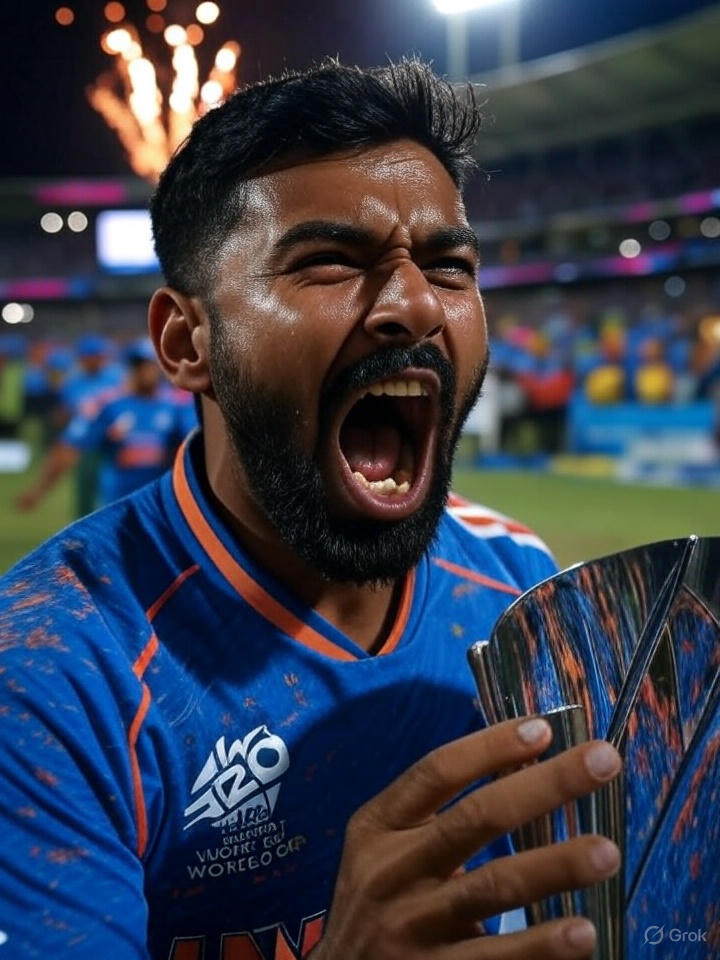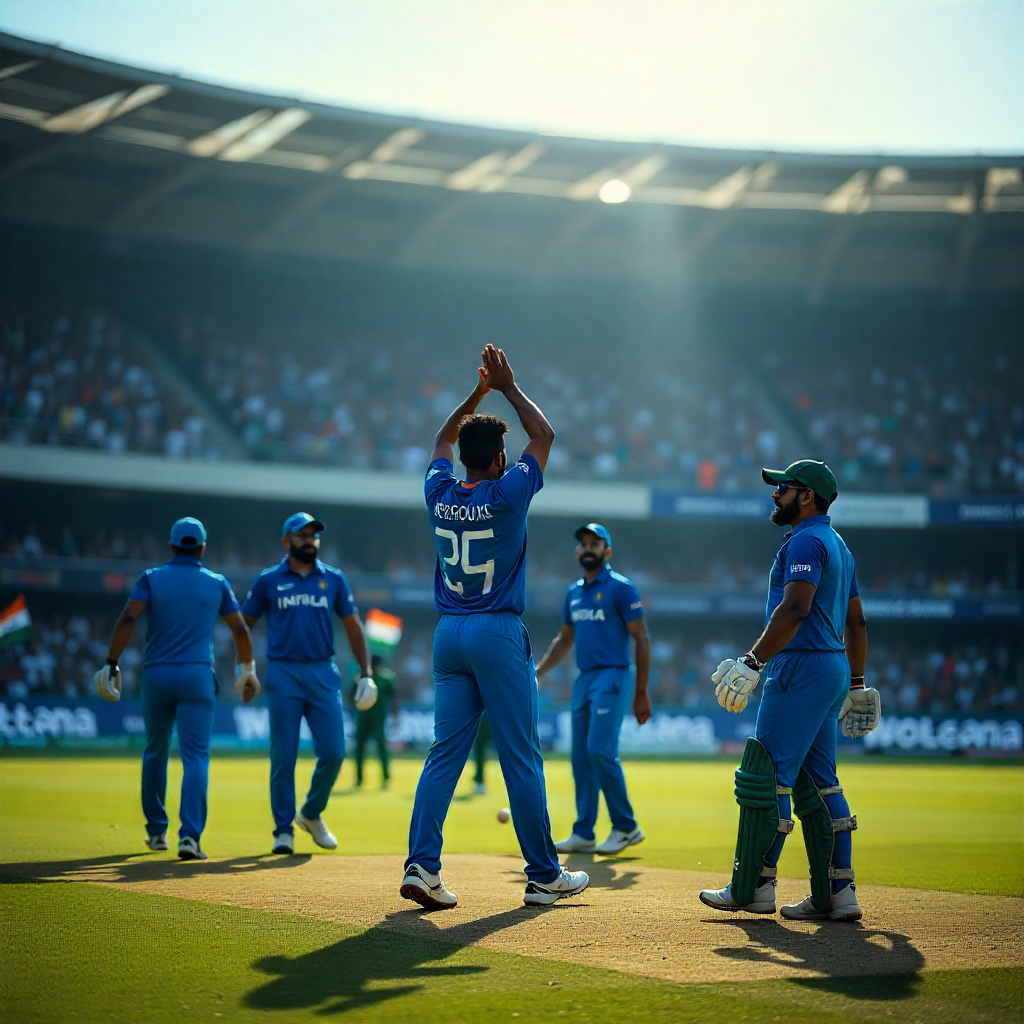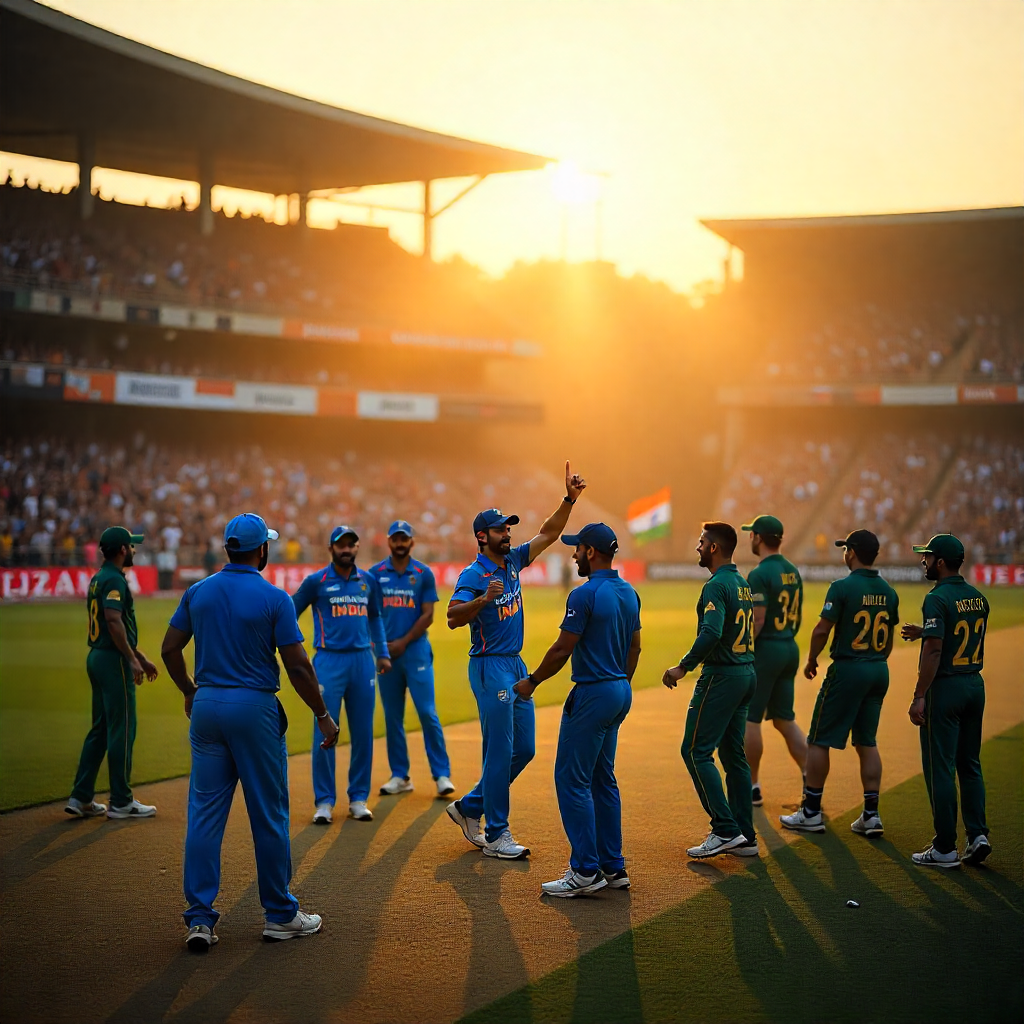India emerged victorious in one of the most dramatic finals in ICC history, defeating South Africa by 7 runs in the 2024 ICC Men’s T20 World Cup Final at Kensington Oval, Bridgetown, Barbados on June 29, 2024. The thrilling encounter captured global attention with standout performances from Virat Kohli, Jasprit Bumrah, Hardik Pandya, and a stunning match saving catch by Suryakumar Yadav (Globedge)
India’s Innings: Setting a High Benchmark
- Winning the toss, India opted to bat first and posted a formidable 176/7 the highest-ever score in a T20 World Cup final (Wikipedia).
- Virat Kohli anchored the innings with 76 off 59 balls, delivering India’s only fifty of the match and earning Player of the Match honors (Rajasthan Royals).
- He added 72 crucial runs with Axar Patel (47 off 31), reviving the inning after a shaky start of 45/3 in the powerplay (Wikipedia).
South Africa’s Chase: Victory Almost in Sight
- South Africa’s chase began strongly; Quinton de Kock (39) and Tristan Stubbs (31) helped launch the run chase, pushing the score to 106/2 at one stage (Rajasthan Royals).
- Heinrich Klaasen then produced the fastest fifty in a World Cup final 52 off 27 balls, including five sixes which swung momentum towards South Africa (Wikipedia).
- With 30 needed off 30 balls and six wickets in hand, the Proteas appeared poised to chase down the target (ESPN Cricinfo).

The Turning Point: Death Over Masterclass
- The match turned in the 17th over when Hardik Pandya dismissed Klaasen on his first delivery and then removed David Miller, swinging control back to India (Al Jazeera).
- Jasprit Bumrah, named Player of the Tournament, bowled a spectacular final spell (2/18) that included the critical wicket of Marco Jansen, restricting South Africa when they looked comfortable at 169/8 with two overs left (Gujarat Titans).
- Arshdeep Singh closed out the 19th over conceding just four runs and removing another tailender, further tightening the screws (Wikipedia).
The Iconic Moment: SKY’s Boundary Heroics
In a breathtaking moment during the final over, David Miller seemed headed for a six that could seal the match. Suryakumar Yadav sprinted, leapt over the boundary rope, tossed the ball back into play midair, and grabbed the catch officially termed “the catch of the century”, and immediately a defining hero moment (Talksport).
Records & Emotional Significance
- India became the first team to win a T20 World Cup undefeated in the entire tournament (Wikipedia).
- The win ended India’s 13 year ICC global title drought, with their last major trophy coming in 2011 (Champions Trophy was 2013) (Wikipedia).
- Following the victory, Virat Kohli, Rohit Sharma, and Ravindra Jadeja announced retirements from T20 Internationals Kohli’s innings in the final serving as a fitting farewell (Wikipedia).
- Rahul Dravid, in his final match as coach, celebrated an emotional culmination of his tenure as India’s coach (Reuters, Reuters).
Summary Table
| Phase | Highlight |
|---|---|
| India Innings | 176/7 Kohli 76, Axar 47; highest first innings in T20 final |
| SA Chase Performance | Klaasen 52 in 27 balls; chase seemed on until 17th over collapse |
| Bowling Impact | Pandya key wicket turn; Bumrah and Arshdeep crushed final overs |
| Defining Catch | SKY’s acrobatic boundary catch denied Miller six |
| Outcome & Legacy | India win by 7 runs, undefeated champions, emotional retirements |
Final Reflection
India’s win in Barbados was a masterclass in handling pressure. Kohli’s experienced batting, Pandya’s breakthroughs, Bumrah’s death over precision, and SKY’s extraordinary catch combined to halt South Africa’s ambitious chase. South Africa, playing in their first ICC final, came heartbreakingly close, and their captain Aiden Markram later called the loss “gut‑wrenching” but expressed pride in his team’s campaign. The match is destined to rank among cricket’s greatest finals not just for the thrilling drama, but for its significance: India rewriting history as undefeated champions, lifting cricket’s T20 crown for the second time, and marking the emotional farewell of legends who defined an era.


